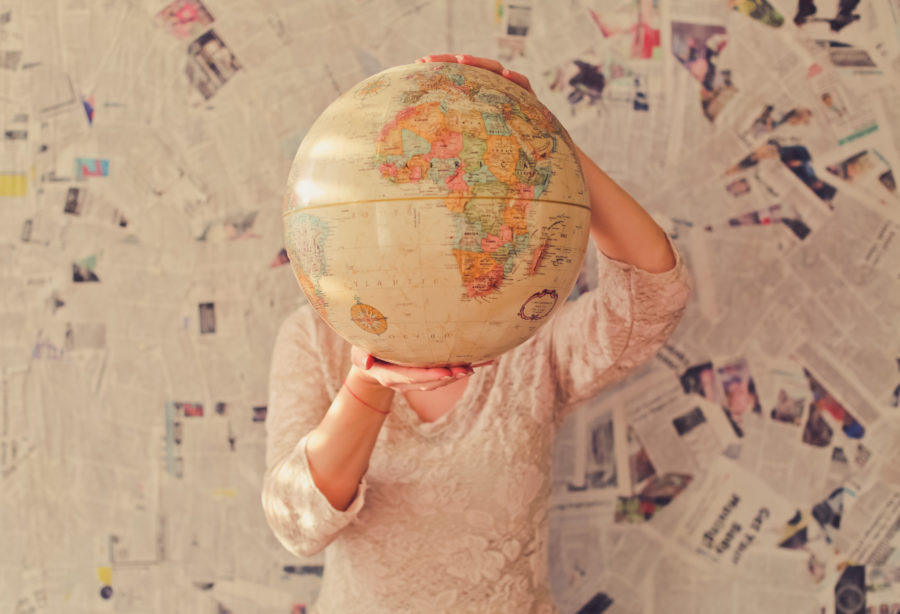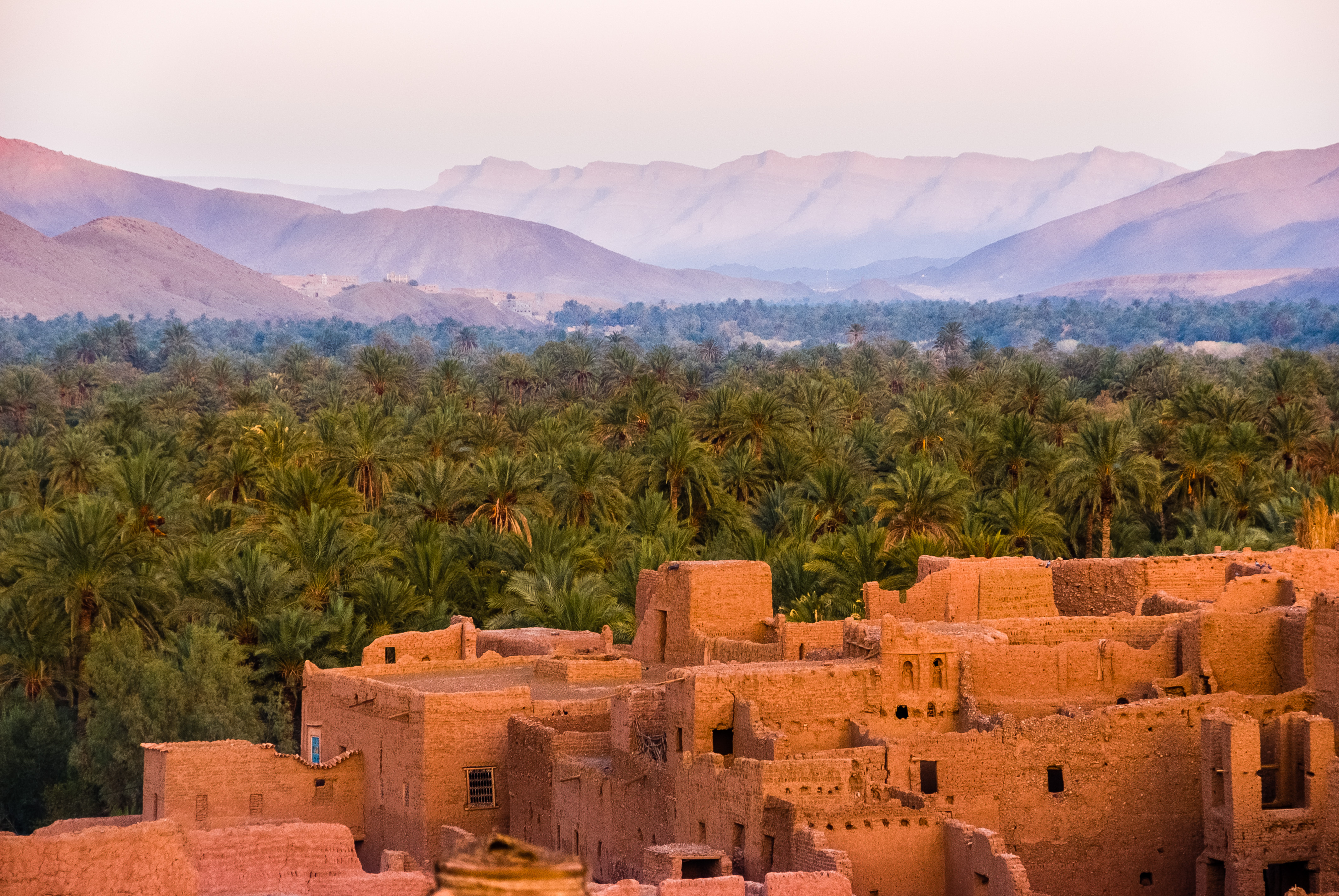
Growing up is hard enough, but what happens when you throw culture confusion into the mix? I am what is known as a Third Culture Kid (TCK), and this is my story about growing up on three continents by the time I reached adulthood.
Third Culture Kid (TCK) is a term that was coined in the 1950s by anthropologist and sociologist Ruth Hill Useem. It’s used to define people who grow up in a culture that is different to that of their parents. This is seen most commonly in children who grow up abroad with parents working in the military, at a foreign embassy, with a long-term mission, or any other type of business abroad.
Children who are raised during their core developmental years in a foreign nation often experience reverse culture shock when they return to their homeland. There is the confusion of having a passport that says they are home but a heart that feels differently. In truth, they can be left isolated and bewildered, wondering how to make a life for themselves among a society that they don’t resonate with.
TCKs could be considered “citizens of the globe,” “nomads,” or “cultural chameleons.” They are flexible in their approach to their own identity based on where they are and who they are with on a given day. This makes them excellent at coping with change. However, the sense of confusion or frustration in not knowing where feels like home can often outweigh this.

My story started in Egypt, where I was born to British parents working abroad. When I was a young child, I moved to Morocco, and then, just in time to experience the endless drama of adolescence, I headed west to the United States where I spent several years in the DC area. Just before my mandatory schooling was complete, I returned to the UK, and I’ve lived here ever since.
It’s been about a decade now, and I’m only just starting to accept that being a TCK is a part of who I am. It’s been a messy journey of utter confusion, hiraeth (Welsh for grief-tinged homesickness), and attempts to schedule Skype dates despite ridiculous time differences. But it has got easier with time and understanding.
As children, we simply “do” life. We go with the flow and we do what feels good. Life in Morocco was good. I attended an international school with other kids like me from around the world. I had one of those strange international school accents that kids develop, which basically sounds American but with a strange, “you’re not quite American, are you?” twang. I spent a lot of time playing outside in the sun.

When the time came to leave, I can’t remember feeling sad about it. It was just what had to be done. We returned to the UK for only a short time before the next job came up in Washington DC. We found out just a matter of days before 9/11 happened. That day, a friend calls–bearing in mind I’m only 10 at the time–and tells me to turn on the news. I do so, but I’m not really sure what I’m looking at or what it means for me. The next day, I could feel the whispers spreading like wildfire. The teacher addressed the whole class, stating that we weren’t going to talk about 9/11 in respect to me.
The initial eeriness passed, and less than a month later I was on a plane heading west. The US is where I spent those terrible teenage years, angry at life, dying to fit in, and ultimately making friends for life. I did a lot of traveling around the country, and if I ask myself honestly, it still feels just as much like home as the UK does. Leaving there some years later wasn’t quite as uneventful as Morocco was. This time ’round I was older, leaving best friends, summer crushes, and the life I knew. But I was also excited. I guess I had that same impression of England that a lot of Americans have: that all the guys speak with cute accents, and I’d drink lots of tea and generally frolic around through rose gardens.
Boy, was it a shock when I returned and had to deal with very real, aggressive bullying for the first time in my life and my parents’ divorce. Not so quaint and lovely. The first week of school I was a novelty; “that girl from America” in a small town. But almost in the blink of an eye, I became a target. The education had been ahead in the States, so I was awkwardly shuffled around in school to classes where I might actually learn something. I guess this sent out the vibes that I thought I was somehow superior to everyone else and had special requirements. I didn’t, I just wanted to learn.
Before I knew it, I was ridiculed, shouted at, and spat on. I ended up missing most of that school year for fear of what those kids would say and do next. My whole world had caved in, both at school and at home. With no more moves in the cards, I wasn’t sure how to cope. Was I supposed to just stay in one place? Was that what normal people did?
Life went on as it always seems to, and I did some great things like go to college and do a bunch of traveling, only there was always the same feeling in my gut that I wasn’t settled. For years I fluctuated between craving “new and exciting” and moving back to America. It was torture.
But eventually, things got better. After talking about it and working through why I felt so trapped, something clicked in my brain. I realized that I am not weird, or worse, “ruined” for having grown up all over the place. It’s OK that I feel at home in multiple countries. Why was I forcing myself to pick only one? I am finally proud of the skills I’ve gained that can’t be bought or learned from a book. I’m adept at changing, and I’m open-minded, creative, and a global thinker. I instinctively operate on a wider perspective because what I know encompasses so many places and people. Plus, if a TCK like Barack Obama can become President of the United States, that bodes well for me!
So while I still don’t have an answer to “so, where are you from?” and I still feel a little bit like Cady Heron when I tell people we didn’t get much TV in Morocco and instead I used to spend my childhood outside with tortoises and scorpions, and I still get down sometimes when I face the reality that most of my friends don’t live in the same country as me, I know that I honestly wouldn’t change a thing.
__
Also by Kat: How to Break Free from Your Life’s Story
Related: 10 Things No One Told Me About Growing Up
Broadway Success Didn’t Make Me Happy–Until I Stopped Living For Validation
Get more like this–sign up for our newsletter for exclusive inspirational content!
__
Photo: Unsplash, Unsplash, and Unsplash




